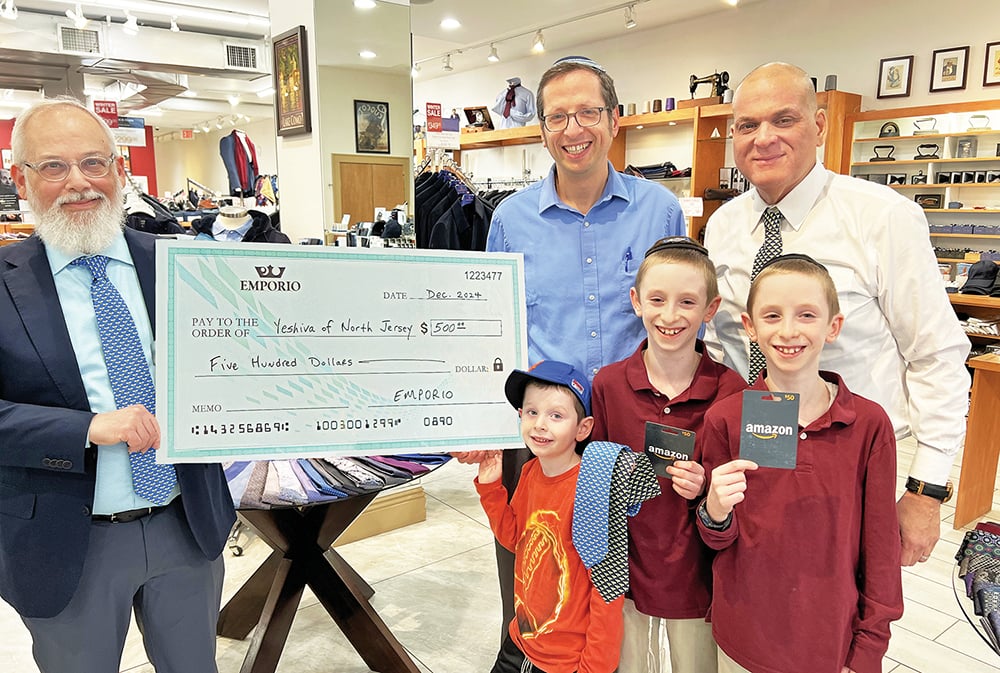On Shabbat morning Simchat Torah, I walked to shul in Efrat with my grandson Jake. Unusual for a family populated by young families, and perhaps satiated with all the candies the night before handed out at spirited hakafot in shuls throughout the area, there were no sounds of children crying or playing. I remarked to Jake, “You are so lucky. You live in such a beautiful, peaceful place.”
Unfortunately, I didn’t listen to my mother and say “pooh, pooh, pooh” or “kein ayin hara.” Five minutes later, we were running to the shelters for the first warning siren of the day. Throughout the Shabbat day, more and more parking spots sprouted on the streets of Efrat, as young men and women responded to call-up notifications and rushed to join their nits.
We have all been glued to news media, so I do not attempt to give you a full picture of the situation … just my personal experiences. But one thing that we all must keep in mind is that Am Yisrael is resilient and determined … as we face unspeakable brutality and pure evil. I have seen this personally. With God’s help we will be victorious.
Immediately after Shabbat, the indomitable generous spirit of Jewish volunteering kicked in. My friends in Netzer Chazani, the first yishuv built by the Labor government in the 1970s in Gush Katif, were able to connect directly with the soldiers mobilizing in the south. The unprecedented size of the mobilization meant that the IDF did not have sufficient resources in place. Many of us spoke to soldiers who were fighting to eradicate the terrorists from southern Israel but had no food. Jewish mothers to the rescue! We helped purchase supplies, make sandwiches, pack care packages (complete with notes from children filled with love and pride) to be brought to the front by individuals and soldiers heading to their units. Some of the soldiers told us that they were so inundated with food that they were eating hamburgers for breakfast, sushi for lunch and pargiot for supper.
Since many soldiers left from shul to join their units, they did not have basic necessities: toiletries, socks, underwear. So we joined groups packing these necessities. When the call went out for portable cell phone chargers, we found a supplier. In all our packages we included chocolate bars and snacks … and lots of love and gratitude.
We also went to Hadassah Ein Karem Hospital to visit wounded soldiers. So many others were also there as we handed out candy and talked to the soldiers and their families. What was astonishing is the number of personal connections we made. Talking to a Druze soldier and his family, they remembered that we had joined Rabbi Kermaier (of the Fifth Avenue Synagogue in New York City before he and his family made aliyah to the Arnona neighborhood of Jerusalem) in visiting a Druze cemetery in the Galilee in order to participate in their Memorial Day services.
The Druze are remarkably patriotic and serve bravely in the IDF. I mentioned that it was a Druze captain who allowed my group of Americans to enter Gush Katif just a week before the evacuation (to give encouragement to the residents). The soldier’s grandfather exclaimed that he knew that captain and had served with him! In another room, we had mutual acquaintances with a soldier from Kibbutz Sa’ad and another from Har Hevron. Time after time we remarked joyfully that “We are all one family.”
Remembering the chaos in the wake of the Gaza expulsion 18 years ago, we also went to the hotels housing the families evacuated from the south. Again bringing candy and chocolate (at least we are consistent), I sat to talk to a woman from Sderot. After a few minutes, she said to me, “I remember you. Eighteen years ago, you came to visit my mother in Nitsan after we were expelled from Gush Katif.” We cried together about the tragedy of repeating this dark history.
We tried to keep busy, in part, to avoid the media. The terrorists tried to demoralize us and released heart-breaking videos of kidnappings and murders. But, rather than demoralize Israeli society, it made us more determined to eradicate this Amalek from the face of the earth.
After, please God, we recapture Gaza, we must never make the criminal mistake we made 18 years ago. The only way to protect ourselves from enemy takeover is to have a presence in the area. The Gush Katif communities of Gaza were force multipliers for the IDF that acted as early warning systems to prevent the enemy from attacking. The people who lived in these front line communities were modern day chalutzim (pioneers) who kept the enemy from our cities in the center of Israel.
Lest you think that we have no more chalutzim today, there are thousands of Israelis who are already volunteering (indeed begging) to return to Gaza to rebuild the beautiful, prosperous, agricultural communities that miraculously thrived for decades until they were destroyed. Kein yirbu! May we share besorot tovot.
Linda Allen is a professor of finance and member of Rinat Yisrael in Teaneck. She currently lives in Israel.













